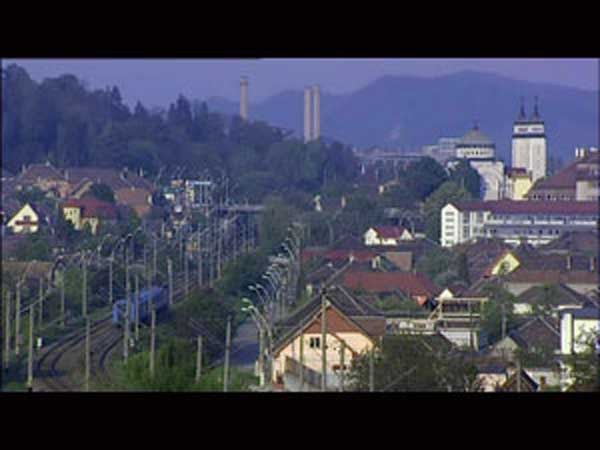Travailler pour 110 euros par mois
-
Réalisé par Nora Agapi, Stéphane Luçon • Écrit par Nora Agapi, Stéphane Luçon
-
France • 2006 • 49 minutes • DV Cam • Couleur
- Réalisation :
Nora Agapi, Stéphane Luçon - Écriture :
Nora Agapi, Stéphane Luçon
- Production (structure) :
Seppia - Coproduction :
HI Film Productions, Dans le même bateau - Diffuseur :
ARTE France, TVR - Televiziunea Romana (Roumanie) - Participation :
CNC, Communauté urbaine de Strasbourg (CUS), Leader +, Région Alsace - Ayant droit :
Seppia
- N° ISAN :
ISAN 0000-0001-9A5A-0000-T-0000-0000-O
Résumé
En avril 2005, le Directeur de l’entreprise Sem-Suhner à Schirmeck déclenche un scandale en France en adressant à 6 employés licenciés une proposition de reclassement en Roumanie, pour un salaire mensuel de 110 euros bruts.
Le documentaire part de cette provocation pour s’intéresser aux personnes qui l’ont vécue – Français licenciés et Roumains nouvellement embauchés – et souligner les conditions de vie dans chacun des pays, les comparer.
Il joue dans un premier temps sur les effets de mise en parallèle entre la France (Schirmeck) et la Roumanie (ville de Medias), pour ensuite offrir la possibilité d’un regard croisé et enfin d’une rencontre.
Une des personnes licenciées vient en Roumanie voir à quoi correspond cette proposition et comprendre comment on peut vivre avec 110 euros bruts (85 net).
La stratégie d’internationalisation du directeur de la PME, la construction européenne et la perspective d’adhésion prochaine de la Roumanie, les contacts entre syndicats français et roumains donneront des éléments d’analyse du problème. Une proposition absurde devient le moteur d’un vrai échange
A movie about outsourcing, about Romanian employees’ perception of French employees and vice versa, a provocation initiated by a French business owner and continued in this documentary to the purpose of revealing two different lifestyles, that of a Romanian employee and that of a French employee.
In April 2003, at the top of the European Referendum campaign, a media scandal was telling the story of a number of women fired from a small company based in Alsace, and who had been proposed relocation in Romania for a salary worth a tenth of the minimum wages in France.
One year later, one of the French former employees of the company decides to come and see in Romania what was this proposal about. Who are those people working over there for a tenth of her salary? Can one really live a month with a Euro 110 gross salary? Are the Romanians happy with that? Is employment flourishing over there?
European enlargement, with Romania becoming a new member in January 2007, makes globalisation and inequalities a touchable issue
Comment avoir accès au film ?



